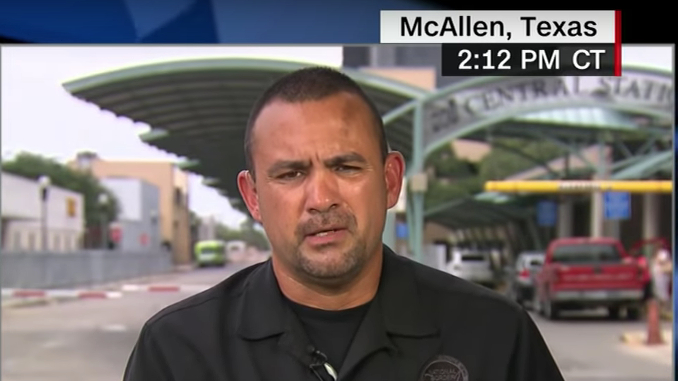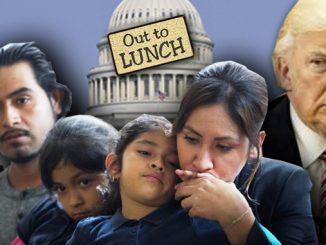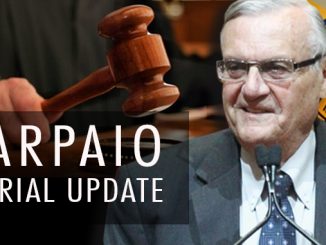
By AFP Staff
Chris Cabrera, a spokesperson for the National Border Patrol Council, was on CNN yesterday not just to defend law enforcement efforts on the border but also to call out Congress for failing in its constitutional duty to solve the immigration crisis.
In the shocking interview, Cabrera recounted horror stories that Border Patrol agents experience on a daily basis while policing the U.S. border with Mexico.
“We’ve had this situation going on for four years now,” he said. “I don’t think you can necessarily blame it on one administration or another. It started under one and is continuing under another. It hasn’t been fixed and it needs to be fixed.”
Cabrera went on to cite some of the worst examples officers have faced as a result of the lax U.S. border enforcement.
“When you see a 12-year-old girl with a plan B [birth control] pill—her parents put her on birth control because they know getting violated is part of the journey—that’s a terrible way to live,” he told CNN. “When you see a 4-year-old girl traveling alone with just her parents’ phone number written across her shirt. . . . We had a 9-year-old boy have heat stroke in front of us and die with no family around. That’s because we’re allowing people to take advantage of this system.”
The spokesman excoriated the mainstream media for focusing solely on the kids being separated from their families and missing the larger picture, which is continuing to send the message that if illegal immigrants will make the terrible journey to the U.S. border, they will be allowed entry. The onus is on Congress to make that stop, he added. The message has to be zero tolerance for illegal border crossings.
And for those likening U.S. Border Patrol officers to Nazis, he had this to say: “Most of our agents are parents. I’ve seen guys and I’ve done it myself—you give your last bottle of water to a kid, you’ll take a toy out of your car to give to one of these kids because you know the situation they’re in. Agents are very sympathetic. We’re human, we’re fathers, we have families. We do a lot for the communities here, whether or not a camera is involved. Our agents are very involved. And nobody saves more lives along the southwestern border than the U.S. Border patrol.”
You can watch the entire interview here:




